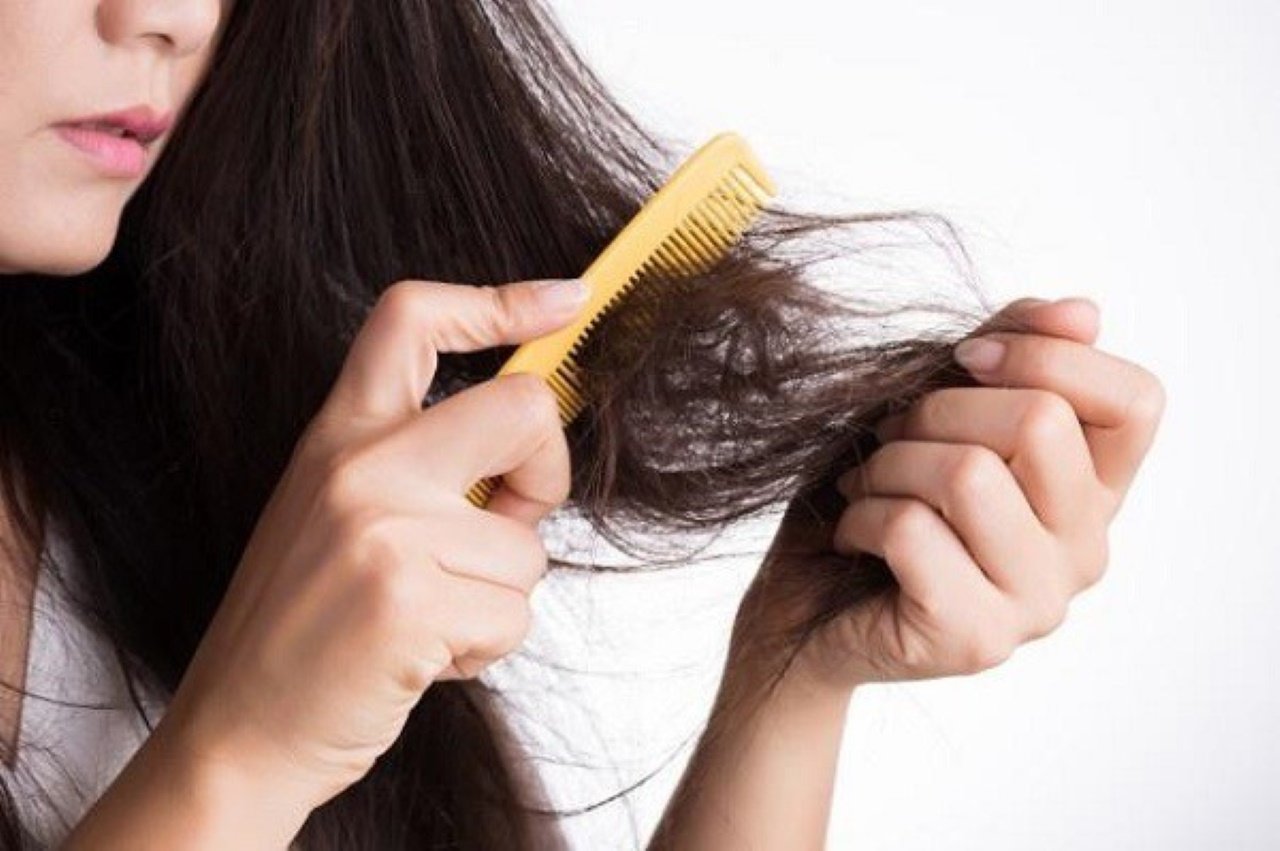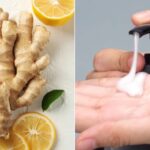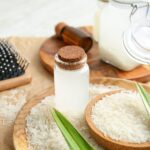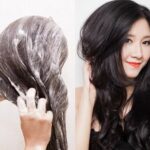1. Why Do We Shed More Hair in Autumn?
According to Health, just like the falling leaves, we tend to shed more hair during autumn. In fact, it’s not uncommon to lose up to 100 strands of hair daily during this season, which is 2-4 times more than the average daily hair loss of 25 to 60 strands. While this increased hair shedding is temporary, it can be a concern for those with thin or sparse hair.
The reason for excessive hair shedding in autumn is attributed to the stimulating effects of summer sunlight on our hormones, resulting in accelerated hair growth during the warmer months. However, as autumn sets in, this growth slows down, leading to increased hair shedding in the telogen phase (the resting phase of the hair cycle).

Hair Loss is More Pronounced in Autumn. (Illustrative Image)
The drier autumn air contributes to a drier scalp, reducing sebum production. This leads to an accumulation of dead skin cells on the scalp, which can clog hair follicles and hinder the activity of hair follicles, further exacerbating hair loss.
Additionally, the significant temperature variations between day and night can impact the resilience of our hair, making it more prone to weakness and dryness. This could be another factor contributing to increased hair shedding during this season.
It’s important to note that increased hair shedding in autumn is not indicative of a medical condition. However, if hair loss persists for more than 3 months and you’re losing more than 100 to 150 strands per day, it’s advisable to consult a dermatologist.
2. Remedies to Address Hair Loss
Maintain a Clean Scalp and Practice Proper Hair Washing Techniques: When washing your hair, avoid extremely cold or hot water temperatures. Instead, aim for a water temperature of 37 degrees Celsius, similar to body temperature. If you have oily hair, minimize the use of conditioner, and if you have dry hair, use it sparingly to prevent tangles. Apply conditioner only to the ends of your hair and then rinse thoroughly.
After washing your hair, allow it to air-dry naturally: If you need to use a hairdryer, set it to the cold air setting and maintain a distance of at least 15 cm from your hair. If you wash your hair in the evening, ensure it is completely dry before going to bed. Sleeping with wet hair can irritate the scalp, damage the cuticle, and create a favorable environment for fungal growth.
Gentle Brushing with a Wooden Brush: Brushing your hair gently with a wooden brush can help prevent hair loss by improving blood circulation and adding shine and elasticity to your hair. However, over-brushing can create static electricity, attracting dust to your hair and scalp, and stimulating dead skin cell production on the scalp.
Avoid Over-styling Your Hair: Daily use of styling products like wax, mousse, sprays, and gels can expose your scalp to chemical ingredients. Therefore, it’s advisable to limit their use.
Scalp Massage for Hair Retention: Massaging your scalp stimulates blood flow and enhances the metabolic activity of cells beneath the scalp, ensuring a continuous supply of nutrients from root to tip.





































